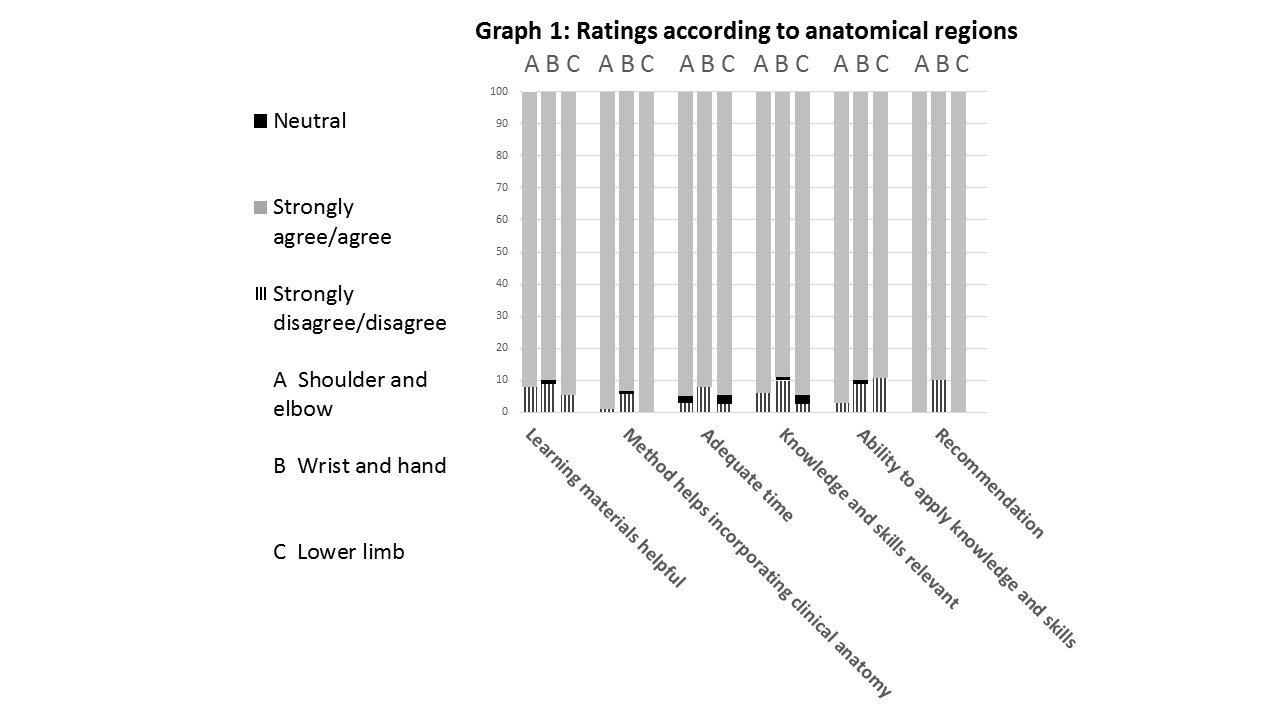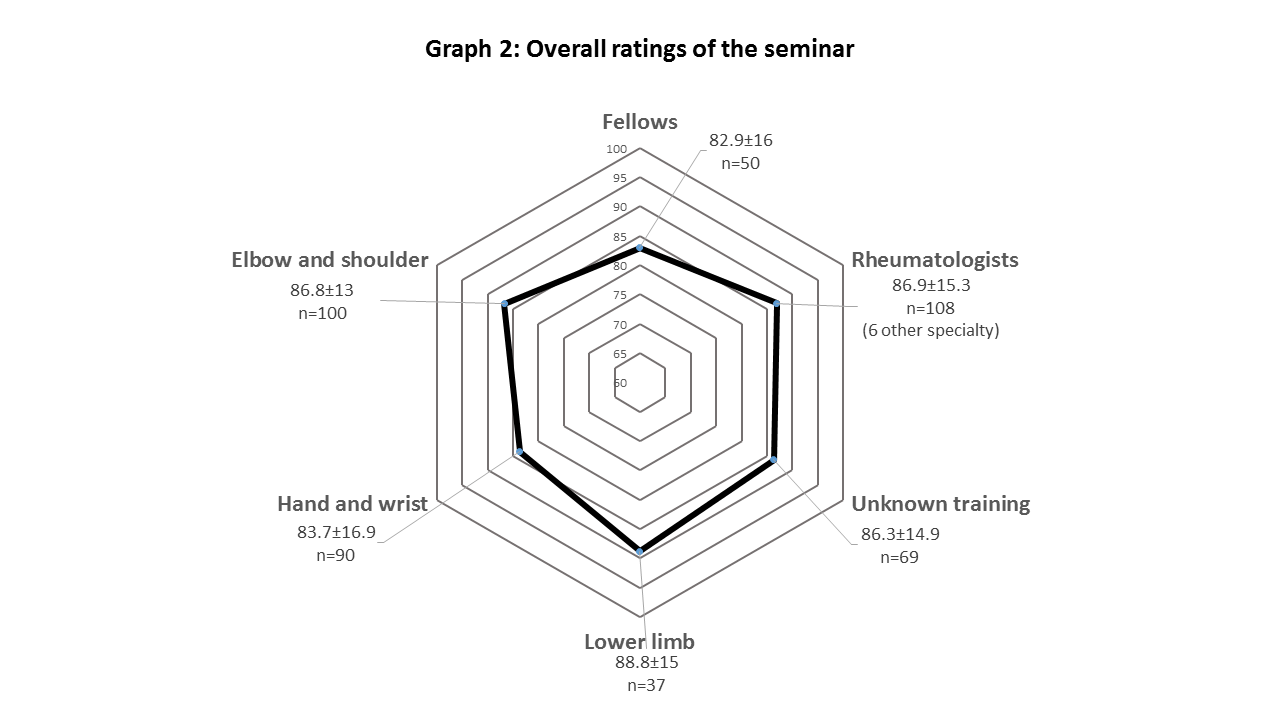Session Information
Date: Sunday, October 21, 2018
Title: Education Poster
Session Type: ACR Poster Session A
Session Time: 9:00AM-11:00AM
Background/Purpose: Traditionally, anatomy has been taught by dissection and textbooks of descriptive and topographic anatomy. Today, dissection is increasingly rare and emphasis is placed instead on peer examination with or without US, and CT or Magnetic Resonance Imaging-based images. Counter-current to this progressively technological evolution, the authors have developed a humanistic method of teaching and learning anatomy that involves self-examination and requires no technology. We have termed this deductive anatomy by self-examination (DASE) and it is based on inspection, palpation, and sensory input originating directly from the self-examined anatomical items.
Methods: The authors gave three DASE seminars at the 2018 PANLAR Meeting in Buenos Aires. Seminars were 1 hour and 45 minutes duration, were given in consecutive days, and each dealt with different anatomical regions. Seminar #1 dealt with the wrist and hand (5 exercises), #2 dealt with the elbow and shoulder (7 exercises) and #3 dealt with the lower extremity (6 exercises). At the end of each seminar participants were invited to complete an anonymous evaluation that included rating five characteristics of the seminar on a Likert scale as well as a global evaluation.
Results: Ninety of 100 (90%) participants evaluated seminar #1, 100 of 120 (83%) seminar #2, and 37 of 60 (62%) seminar #3. Graph 1 shows the global ratings per anatomical region by rheumatologists, unspecified professionals, and fellows. In all instances, the acceptance rate was over 80%. A strongly agree rating was given by 60 to 92% of participants in the lower extremity seminar, 52 to 78% in the shoulder and elbow seminar, and 43 to 68% in the hand and wrist seminar. Graph 2 depicts the individual questions asked, and the participants recommendation, per anatomic region. Once again, scores were uniformly greater than 80% acceptance on questions regarding attendee’s satisfaction and the technique’s relevance and applicability. There was the suggestion that movies be included to facilitate the performance of the exercises.
Conclusion: DASE was well received by a variety of participants. There were no differences in the evaluation scores according to the anatomical region or participants’ level of training. The authors believe that DASE holds promise as a supporting method to the usual teaching of anatomy. Exercises are self-performed, may be repeated as needed, cause no embarrassment, and have no cost. Problems inherent to its N=1 nature may be solved by peer examination. DASE is now being assessed in medical students.

To cite this abstract in AMA style:
Saavedra MA, Pascual-Ramos V, Canoso JJ, Sanchez-Valencia MA, Kalish RA, Hernandez-Diaz C. Deductive Anatomy By Self-Examination. Preliminary Evaluation of a Novel Method to Reinforce Knowledge of Musculoskeletal Anatomy at the 2018 Panlar Meeting [abstract]. Arthritis Rheumatol. 2018; 70 (suppl 9). https://acrabstracts.org/abstract/deductive-anatomy-by-self-examination-preliminary-evaluation-of-a-novel-method-to-reinforce-knowledge-of-musculoskeletal-anatomy-at-the-2018-panlar-meeting/. Accessed .« Back to 2018 ACR/ARHP Annual Meeting
ACR Meeting Abstracts - https://acrabstracts.org/abstract/deductive-anatomy-by-self-examination-preliminary-evaluation-of-a-novel-method-to-reinforce-knowledge-of-musculoskeletal-anatomy-at-the-2018-panlar-meeting/
